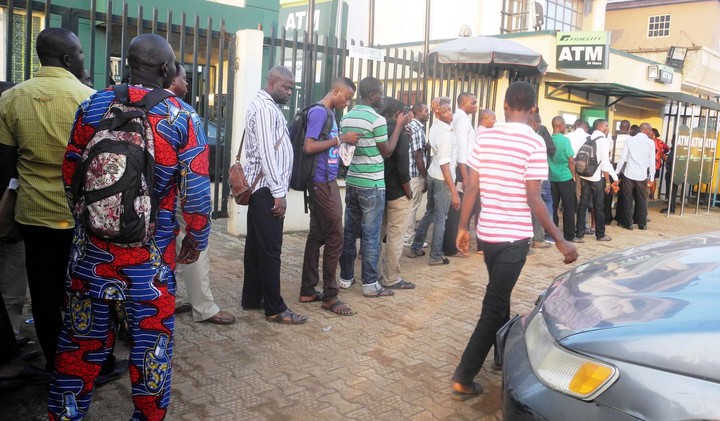By Odunewu Segun
Still battling a tough dollar scarcity, Banks in the country have pegged monthly transaction on PoS and online transactions using cards at $100, British Pounds Sterling 90, Euro 130 and Canadian Dollars 360.
National Daily gathered that with the ban on cash withdrawals with Automated Teller Machine (ATM) cards abroad by banks last week, travelers are now finding it difficult to pay their hotel bills, make reservations and other transactions with their deb cards.
However, in a move to ease the difficulties being face by travelers, some of the lenders are now allowing transactions on PoS and online deals, under a marginally set limit. In an emailed note to customers, GTBank said it had reviewed international spending limit on ATM cards downwards but restricted such transactions to cards used on PoS and online transactions.
As a way out of the crisis, banks are now encouraging travellers to open dollar accounts, which have no spending limit. Such cards are issued by the banks on domiciliary accounts funded directly by customers, but the ongoing dollar scarcity and pains of sourcing the greenback makes funding such accounts a herculean task and at cut-throat rates.
Naira forwards have soared to records, suggesting foreign investors see another devaluation coming. Contracts maturing in six months trade at N384 per dollar, their highest-ever level. Those due in a year have climbed to N422 from N325 since the end of June. The naira’s spot price climbed 1.7 per cent to about N310 to dollar.
With the naira closing at the weekend at 310 to dollar in the official market and 450 to dollar in the parallel market, expert has predicted that the naira would end the year at N390 to a dollar in the official market.
Speaking recently on the dwindling value of the naira, Chief Economist at Renaissance Capital (RenCap) Charles Robertson, said he expects the interbank forex rate to fall further, despite the naira being undervalued, partly due to low market confidence.
“The widening gap between the parallel forex rate of N450 to dollar and the interbank rate of N310 to dollar implies the market thinks the interbank rate should be lower. However, we do not think the ‘market-clearing rate’ is as low as the parallel rate suggests, because that market is illiquid,” he said.
The Central Bank of Nigeria (CBN) started tightening capital controls in late 2014 to defend the naira as crashing crude prices crimped export revenues. It then imposed a 16-month peg of N197 to N199 per dollar from February 2015 until June 20 when the flexible foreign exchange policy was unveiled to allow naira float freely in the market.

 Football7 days ago
Football7 days ago
 Health & Fitness1 day ago
Health & Fitness1 day ago
 Featured5 days ago
Featured5 days ago
 Comments and Issues7 days ago
Comments and Issues7 days ago
 Education6 days ago
Education6 days ago
 Business6 days ago
Business6 days ago
 Education1 week ago
Education1 week ago
 Crime6 days ago
Crime6 days ago

